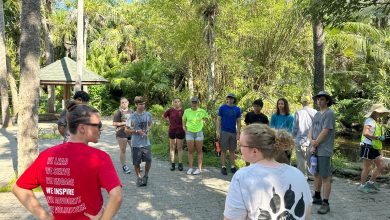Being a woman in STEM can be heavy
About Quintcey Parrish
Quintcey is currently pursuing her degree in mechanical Engineering and STEM education and expects to graduate in 2018. She is a member of the RiSE reseach lab under Dr. Chiradeep Sen.
She is the Co-President of the EMpwr student chapter for entrepreneurship in engineering, and a University Innovation Fellows (UIF) Trainee.
What inspired you to pursue a STEM education and career?
My favorite classes were math and science, so going into STEM was the only thing that made sense. When I chose the field that I wanted to go into, I didn’t consider that I would be a minority, I just knew that I wanted to follow my interests.
What do think are some of the most shared/common challenges women in STEM fields encounter?
The first is the social challenge. It is not that men don’t accept the woman, I think this is getting better; the social issue is that men and woman have different interests and conversational topics, it is not a brick wall barrier, but it is something that could make woman less at ease in a STEM setting. The second thing that I think could be a common challenge is taking on a heavy work load to prove that you belong in the STEM setting, but taking on so much that you become significantly more stressed or swamped with work than you need to be. As a woman in the male field, I know I would want to show off that I can do anything a man can do and better, but that can lead to stress when taking on too much.
How have you overcome obstacles/challenges as a woman in STEM?
I don’t know how relevant it is to being a girl, but the guys in my high school physics classes used to ask questions that were extremely over the top, trying to incorporate external knowledge that wasn’t relevant to the topics we were discussing at all. It slowed down the class because the teacher would get sidetracked and I would be sitting there listening to a conversation that was in a language I had no idea how to understand. I would distract myself with practice problems and reviewing my notes instead of listening and tried not to let their arrogant questions confuse me from what I need to know.
Knowing what you know now, what advice you would give your younger self?
I would tell myself to quit putting off lab reports, you have to do them eventually anyways. I would also say this to my future self.
What one takeaway would you want to impart on a young woman thinking of pursuing an education/career in STEM?
I would want to encourage them not to get discouraged, ask questions, and not to feel like your failing if you’re not the top student in the class. It is easy to feel like you don’t belong if the guys have different interests and keep you from the conversations, or if the guys are talking over your head or about things that you don’t understand. If it’s something you want to understand, ask them what they’re talking about and make it a learning opportunity. Just because you may be one of two or three girls in a 40 person class, that doesn’t mean you have to stress yourself to make sure you do better than everyone; you are not in the class to prove a point, you are there to learn. Just by being in the class at all is impressive, relax and don’t take on more than you think you can handle just to show off. We already know you can, that’s how you made it this far already.
What is an aspect of being a woman in STEM you were surprised to discover?
I knew that engineering and Florida Tech was male-dominated, but when I sat in my Into to Mechanical Engineering class freshman year, I was surprised I could count all the girls in my class on two hands. There’s a difference between being told that most of my classes would be male-dominated than actually sitting in a lecture hall and seeing it.
In your experience, what are the top things leaders could do to encourage more young women to enter STEM fields?
Girls need to be encouraged at younger ages to pursue math and science. My life changing insight on women in STEM was in a 6th grade classroom trying to teach a math lesson for the STEM Education class Inquiry-Based Lesson Design. I was walking around the room while the class did some practice problems, and a group of three girls were talking nonchalantly. I walked over to see the work they had done and their paper had the problem and no work. When I asked them why they hadn’t tried the problem, they said they didn’t understand how to do it, but they are good at History and English so they don’t really need to be good at math. After we worked at the problem, the girls understood and were able to complete the rest of the practice problems. To encourage young women to enter STEM fields, leaders need to show young women that yes, it takes effort, but they need to be shown that it is important not just for them to know how to do it, but that they can do it.





